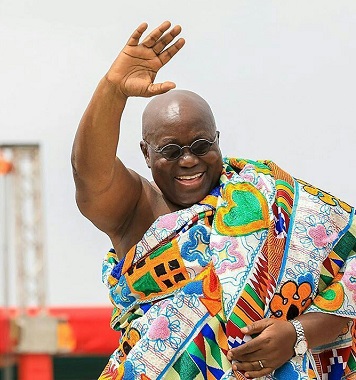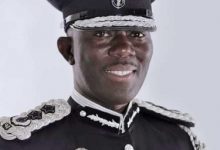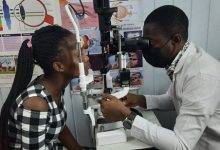
IT was a new dawn when Dr Kwame Nkrumah, Ghana’s First President, on the eve of March 6, 1957, in his capacity as Prime Minister, declared the then Gold Coastan independent Ghana. “Ghana, your beloved country, is free forever,” but not without the “total liberation of the African continent,” he declared.
The vision of Dr Nkrumah and his team which led the final phase of the independence struggle which had started centuries earlier, was to see the new Ghana the gateway to Africa.
Three years into the prime ministership of Dr Nkrumah, July 1, 1960 to be precise, Ghana became a republic, breaking its political relationship with the Brits.
Becoming a republic meant Ghana would now operate with its own constitution, currency, and take all other administrative decisions without recourse to the Queen of England.
During the first republic which lasted for six years, Dr Nkrumah embarked on massive infrastructural drive, education, agriculture, industrialisation, amongst other interventions to make Ghana that gateway to Africa.
In the eyes of the world, a new kid was on the block and determined to push for the liberation of the continent. In his backyard, however, there was political machinations by the Nkrumah administration to make Ghana a one party state. With an overwhelming majority in the First Parliament, Nkrumah passed the Prevention Detention Act (PDA) ostensibly to silence dissenting voice.
Exactly a year after one of Ghana’s celebrated member of the famous ‘Big Six’, Joseph BoakyeDanquah, without trial died in prison, Dr Nkrumah overthrown on February 24, 1966 whiles in Hanoi, Vietnam on a State visit.
The First Military Junta.
The National Liberation Council (NLC), led by Lt Gen. Joseph Arthur Ankrah, formed the first military administration and reversed some of the unpopular decisions by the Nkrumah administration including restoration of ties with the Western as the economy take a nosedive.
The administration however would not go beyond three years as the NLC would make way for a democratically elected government. That transition was to be led by a Supreme Court Judge, Raphael NiiAmaaOllenu.
The Second Republic.
On October 1, 1969, democracy was restored in Ghana as Dr Kofi AbrefaBusiatook over the reigns of power having won the 1969 elections.
During his time, Dr Busia, as Prime Minister, as the system has designed, initiated the repatriation of foreigners including Nigerians to free up the retail market for Ghanaian traders. That action was reciprocated by the Nigerian government as the case is in international relations. Unpopular decisions likeintroducinga loan scheme for students, devaluation of the local currency, the cedi,culminated into the overthrow of the Busia administration after just 27 months into office.
The National Redemption Council.
The Second Republic was truncated by the National Redemption Council (NRC) on January 13 1972. The NRC, led by Lieutenant Colonel Ignatius KutuAcheampong, was to momentarily redeem Ghana from the ruling elite. It, however, was reorganised into the Supreme Military Council (SMC) in 1975 to constitute a ‘proper’ military junta.
The Acheampong ‘government’ became very popular among the people with policies like ‘Operation Feed Yourself’ but a‘palace coup’was staged by Lieutenant General Frederick W.K. Akuffo in July 1978 giving birth to then SMC II.
Though the Akufo leadership promised to hand over power to a democratic government to elected in 1979, the Armed Forces Revolution Council (AFRC) would not wait.
A bloody takeover.
Led by young Flt Lieutenant Jerry John Rawlings, a bloody coup erupted on June 4, 1979 leading to the killing of the SMC leaders and other top officials in that administration. The AFRC regime, however, handed over power to the Dr HillaLimann administration after its success at the polls.
The Third Republic.
The Limann administration is the most short-lived democratically elected administration in the annals of the country. Having won the June1979 elections on the ticket of the People’s National Party, the administration was overthrown by the Provisional National DefenceCouncil (PNDC).
The PNDC.
Led by Flt Lieutenant Jerry John Rawlings, the PNDC was in power for 11 years, making it the longest serving administration in the history of the country. The long stay of the PNDC in office significantly improved the economy after many years of instability.
The administration would later metamorphosed into a democratic political party, the National Democratic Congress (NDC) to usher the country into a new republic.
The Fourth Republic: The Era of the Johns.
The fourth republic, which came into effect in January 1993, till date, remains the most stable era of Ghana. Having experienced seven elections, it is during this time that power has been transferred, for the first time, from one government to another and Ghana has witnessed this on three occasions.
Having assumed office on January 7, 1993 as a democratically elected President, Jerry John Rawlings passed the baton to John AgyekumKufuor on January 7, 2001. Professor John Evans Atta Mills of blessed memory assumed office as the third president of the fourth republic in January 2009, John Mahama took over shortly after the former’s death.
The Johns’ reign was ended in January 2017 as the mantle of leadership was passed to President Nana Addo Dankwa Akufo-Addo following his victory in the December 2016 elections.
Ghana will again in December this year go to the polls again to elect its leaders to further entrench its envied position as the beacon of democracy on the continent.
JULIUS YAO PETETSI




